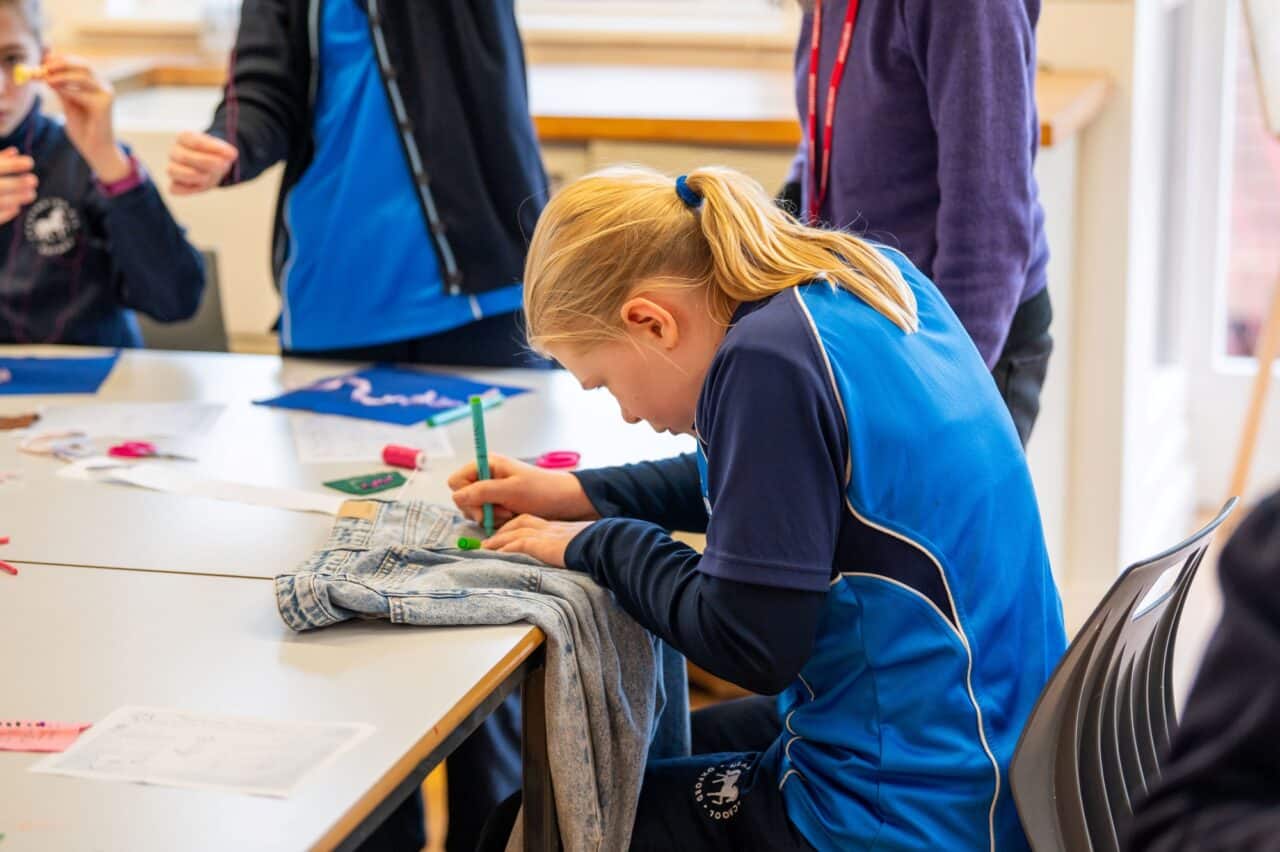Preparing boys for Senior School part 2
Entrance Exams and Interviews
In my previous blog, Preparing Boys for Senior School, I discussed the importance of preparing boys from a young age by embedding positive learning habitats and routines, developing their stamina and supporting their emotional needs. In this blog, we will explore the requirements of different entrance exams, how to prepare boys for these and how to make a good impression during interviews.
Getting ready for entrance exams and interviews can feel like walking into the unknown as these assessments are designed to test a wide range of skills, from academic knowledge to problem-solving abilities, as well as a boy’s potential for academic success. Often the exam formats and question styles are unfamiliar, therefore it is important that boys have early exposure to these types of assessments and are taught strategies for tackling different question types.
A structured and comprehensive preparation plan is essential for ensuring success in these crucial assessments and this is where the school is able to work alongside parents to plan and tailor the support required. From the summer term in Year 5 until the spring term in Year 6, entrance exam and interview practice sessions are built into your son’s timetable. Boys will be taught interview and exam techniques, as well as strategies for tackling the different types of questions, using 11+ practice papers. Their progress will be carefully tracked and areas of weakness targeted both within these sessions and, in collaboration with their Form Tutors, within their English, Maths and Science lessons (as required). As Head of Boys, I ensure parents are kept informed of their son’s progress and help them to identify areas to work on at home.
Once parents have identified the school/s they wish their son to apply for, it is important for them to let the school know so that we are able to tailor our preparation sessions more effectively. At this stage I meet with parents to discuss the work we are doing in school and what they can do at home to further support this. It is important for parents to research the exam content for each school, so that they are aware of what is required. Most school websites outline their admissions assessments and most test English, Mathematics and Reasoning skills. Some schools may also assess pupils in Science. English exams usually cover comprehension, spelling, punctuation and creative/descriptive writing, whilst Reasoning exams can include both verbal and non-verbal reasoning papers.
Verbal reasoning papers require pupils to have read widely and to have built up an extensive vocabulary bank. This tends to be the most challenging type of assessment for children and therefore requires the most practice. In school, the first hurdle is teaching the boys to understand what the question is asking them to do and this is where analysing the examples provided will really help them to clarify this. Working through the questions with them and explaining the thought process of how you came to work out the answer, what patterns you might have looked for, what knowledge you drew upon, if you used a systematic method, etc. acts as a model for your child to follow when working independently. I also find it helps to ask children to explain to you how they worked out their answers. Being able to articulate their thinking will help them to clarify their own thoughts, to identify successful strategies and for you to better understand how to support them.
Non-verbal reasoning tests assess skills such as:
- Spatial Awareness – understanding and remembering the relationships between objects in a space.
- Pattern Recognition – identifying patterns and inconsistencies in a series of shapes or designs.
- Logical Thinking – making deductions based solely on visual information.
These types of assessments are designed to identify pupils who think more easily in images than words and therefore non-verbal reasoning tests can be used to measure the potential of children who have limited literacy skills or children with English as an Additional Language (EAL). By concentrating on basic learning processes and on reasoning skills rather than reading or mathematical knowledge, these non-verbal assessments provide effective indicators of future academic performance in certain subjects such as Maths, Science, and Design and Technology.
It is important for your son to be familiar with how to write different types of answers to questions and this is something that we will practise in school. Entrance exams often include a mix of multiple-choice questions, short answers, long answers and sometimes essay-style questions – all worth different points. Identifying how many points a question is worth and knowing how to structure longer answers is a skill which they will need to learn. It will also help them to manage their time better in the exams.
Once your son is familiar with the different types of assessments, question types and answer formats, the next stage is to support them in building their exam technique, to ensure they are able to complete the papers in the allocated time and to the best of their ability. Boys need to learn how to allocate their time wisely during the exam. To support them in this, I find that it helps to practice timing each section and teach them how to gauge when to move on from a difficult question to avoid getting stuck. Focus on attention to detail, as entrance exams often include questions designed to test this particular quality and encourage careful reading of instructions and questions to avoid simple mistakes. To help your son cope with the pressure and stress of the exams, teach him relaxation techniques such as deep breathing or visualisation to help him stay calm and focused under exam pressure.
Successful exam preparation is not just about content knowledge but also effective study habits and techniques. Parents will need to support their child to develop a realistic study schedule that covers all subjects, includes breaks, and allows for a gradual increase in study intensity as the exam date approaches. Most importantly, ensure the plan balances study time with relaxation to avoid burnout. Practice with past papers or sample tests (easily accessible online – search 11+ exams) to familiarise boys with the format, timing, and types of questions they will face and simulate exam conditions to help reduce any anxiety and build their confidence. Regular assessments and feedback will help pinpoint areas where additional practice is needed and allow you to focus extra time on these weaker areas to ensure a balanced skill set.
While exams assess a child’s academic skills and knowledge, interviews evaluate a boy’s character, confidence and communication skills, and are an integral part of the entrance process. Understanding the interview format will help to prepare your son. Will the interview be one-on-one or panel-based? Will it focus on academic topics, personal interests, or a mix of both? At school, we conduct mock interviews and practise common questions, such as “What are your favourite subjects?”, “Why do you want to attend this school?”, or “Tell us about a time you faced a challenge.” Further practice at home will also help build your son’s confidence. Encourage him to speak clearly, maintain eye contact and listen attentively. Practising in a formal setting and role-playing different interview scenarios can help them become comfortable speaking in front of adults. Schools often value curiosity and a willingness to learn, so encourage your son to express a genuine interest in the school and its curriculum offer during the interview, and to ask thoughtful questions.
Entrance exams and interviews can be stressful, so building confidence and resilience is key. Boys need to understand that effort and persistence are as important as innate ability. Praise their hard work and progress, not just their results. Be open about the process, help them to manage their expectations and to see the process as a learning experience and an opportunity to showcase their abilities regardless of the outcome. Encourage a positive mindset, focusing on what they can control (preparation and effort).
To ensure that boys are comfortable and prepared for the logistics of exam day, if possible, visit the exam location beforehand to familiarise them with the setting, reducing nerves on the actual day. Prepare the night before, by making sure they have all necessary materials (like pens, pencils, and any documents required) ready in advance. Encourage a calm, early night to ensure they are well-rested. On the day of the exam or interview, ensure they have a healthy breakfast and plenty of time to get ready without feeling rushed.
Finally, remember you are not alone in supporting your son to secure the senior school of his choice. As Head of Boys, I will be there every step of the way to guide you through the process and, along with his teachers, work with you and your son to prepare him for the exams and interviews. This process is a journey, and each step taken builds not just towards a successful exam and interview day, but also towards a bright future in senior school and beyond.



